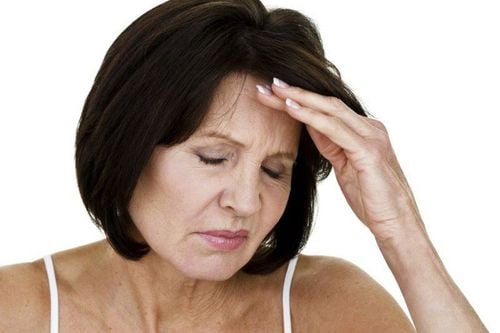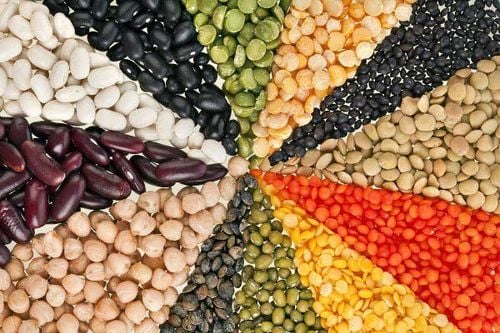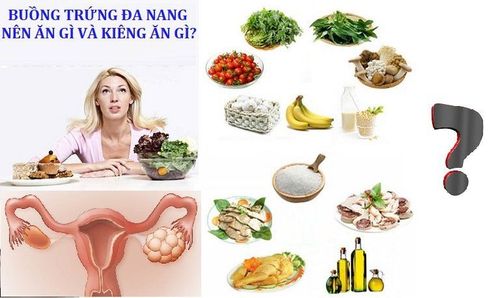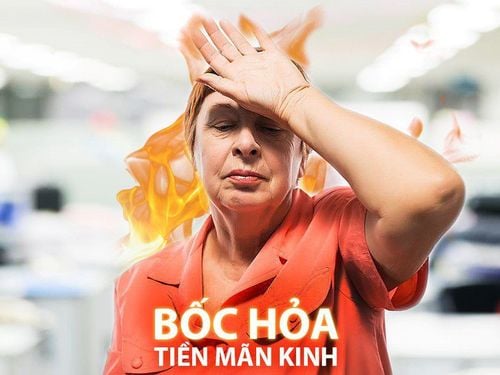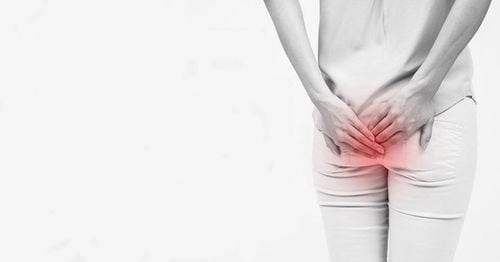This is an automatically translated article.
Hormone therapy is the most effective therapy for hot flashes, but there are other treatment options. Non-hormonal treatments include dietary modifications, lifestyle changes, and over-the-counter therapies.
1. Non-hormonal therapy
Hormone therapy is the most effective therapy for hot flashes. However, other non-hormone options are available for women who are experiencing symptoms, but are not yet ready to consider hormone therapy. Some women are not suitable candidates for hormone therapy, such as those newly treated for breast cancer. It's important to remember that when used appropriately, hormone therapy can be a safe and effective option for many women. Here we will look at non-hormone treatment options for women.
2. Non-drug treatments
Hot flashes can be ended by hot weather, smoking, caffeine, spicy foods, alcohol, tight clothing, heat, and stress. Identify and avoid "triggers" of hot flashes. Some women notice hot flashes when they eat a lot of sugar. Exercising in warm temperatures can make hot flashes worse.
2.1. Diet Avoiding caffeine, spicy foods, and alcohol can help reduce both the number and severity of hot flashes. Many women try to incorporate more phytoestrogens into their diets. Plant estrogens, such as isoflavones, are believed to have a weak estrogen-like effect that can reduce hot flashes. They can act in the body like a weak form of estrogen. Examples of plant estrogens include: soybeans, chickpeas, lentils, flaxseeds, grains, beans, fruits, red clover, and vegetables. In general, soybeans, chickpeas, and lentils are considered the most potent phytoestrogens, although their effects are much less potent than human estrogens. Try to choose natural foods rather than supplements. Also keep in mind that only ground or ground flaxseed forms are likely to be useful (versus whole or seed oils).
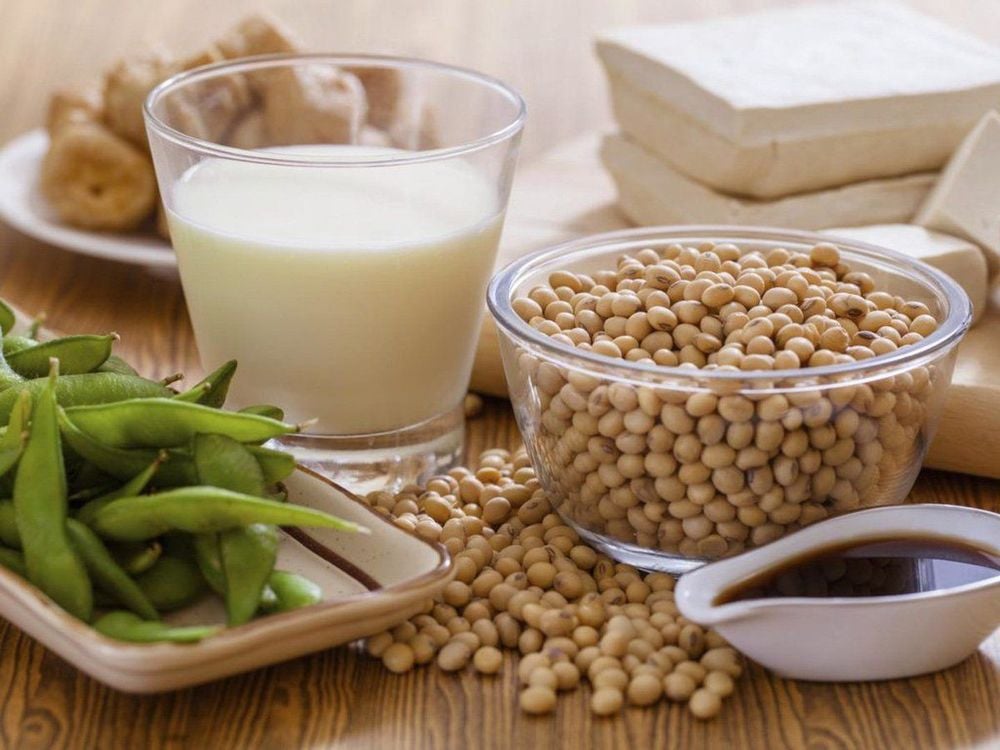
Bổ sung estrogen thực vật giúp giảm triệu chứng cơn bốc hỏa một cách hiệu quả
Which foods are high in isoflavones
Soy, green, Crude Isoflavones, amount (Mg) in food (100g): 151.17 Soy flour (texture) Isoflavones, amount (Mg) in food (100g) : 148.61 Soybeans, Isoflavones dry roasted, amount (Mg) in food (100g): 128.35 Soy instant beverage, powder, without Isoflavones, amount (Mg) in food (100g): 109.51 Mixed miso soup, Dried Isoflavones, Food Amount (Mg) (100g): 60.39 Soy Chips Isoflavones, Food Amount (Mg) (100g): 54.16 Tempeh, Cooked Isoflavones, Amount (Mg) in food (100g): 53.00 Soy curd cheese Isoflavone, amount (Mg) in food (100g): 28.20 Tofu, silken Isoflavone, amount (Mg) in food (100g ): 27.91 Tofu, Isoflavone yogurt, amount (Mg) in food (100g): 16.30 Isoflavone soy milk, amount (Mg) in food (100g): 9.65 2.2. Lifestyle changes Lowering the temperature in the room, wearing layers of clothing, and using a fan while sleeping can be effective ways to help deal with annoying hot flashes. Overweight women tend to have more uncomfortable hot flashes, so losing weight can help. Quitting smoking has a dual importance during menopause. First, smoking contributes to an increased cardiovascular risk in the postmenopausal age. Second, smokers tend to have more hot flashes. Women who lead a sedentary lifestyle seem to have more hot flashes; However, it's best to exercise in a cooler environment. Try deep and slow belly breathing (6 to 8 breaths per minute). Practice deep breathing for 15 minutes in the morning, 15 minutes in the evening, and at the onset of hot flashes. For some women, wearing socks to bed is helpful because it can help cool body temperature.
2.3. Avoid Insomnia Keep the bedroom cool to avoid night sweats. Avoid using sleeping pills. Daily exercise. Avoid caffeine and alcohol at night. Take a warm bath before going to bed. Try dairy products before bed or at night (but avoid products that contain caffeine). 2.4. Avoid mood swings, fears, and depression Find a self-soothing skill to practice, such as yoga, meditation, or deep, slow breathing. Avoid sedatives, if possible. Engage in a creative practice that fosters a sense of accomplishment. Stay connected with your family and community 2.5. Pain relief during intercourse Try using a moisturizer or water-based vaginal lubricant during intercourse. They are sold over-the-counter near condoms in most stores. Common names include Astroglide® and KY liquid®. Avoid taking Vaseline®, as it can lead to a yeast infection.
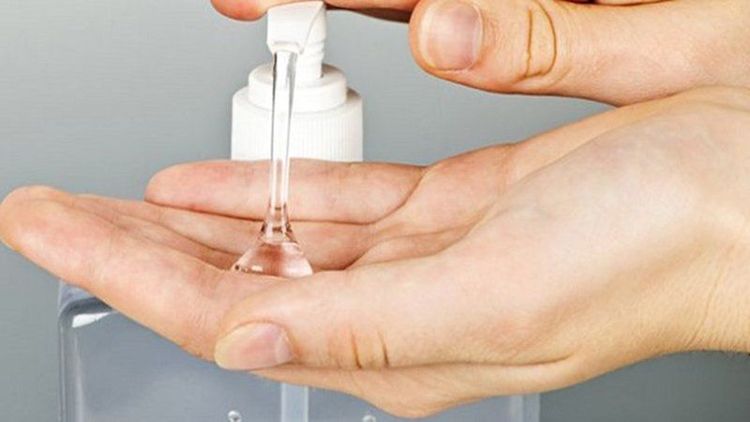
Bạn có thể sử dụng các chất bôi trơn để giảm tình trạng đau đớn khi quan hệ
3. Use of prescription and non-prescription drugs
Several non-hormonal remedies are available to treat hot flashes. Some of these remedies (e.g., Black cohosh and soy products) are available over-the-counter but are not FDA-approved. Some prescription medications are used "off-label" to help reduce hot flashes. Using an "off-label" product means that the product is not FDA-approved to treat hot flashes, but is commonly used because it is possibly safe and effective to treat hot flashes.3.1. Prescription therapy Prescription therapy is considered a more effective non-hormonal treatment. These include: Drugs: Venlafaxine (Effexor®)Side Effects: Nausea, change in bowel habits, headache (mostly temporary side effects). Increases blood pressure (at high doses).Efficacy: Efficacy has been demonstrated in several well-designed studies. One of the safer drugs for women taking tamoxifen (no drug interactions).
Drugs: Desvenlafaxine (Pristiq®)
Side effects: Similar to venlafaxine. Nausea, change in bowel habits, headache (temporary side effects for most cases). Hypertension (at high dose)
Efficacy: Improved hot flashes compared with proven placebo. The drug is newer than venlafaxine, so there are some smaller studies.
Drugs: Fluoxetine (Prozac®)
Side effects: Nausea, change in bowel habits, decreased sex drive, insomnia. It should be avoided in women taking tamoxifen.
Efficacy: Improvement in hot flashes has been shown in well-designed studies.
Medication: Paroxetine (Paxil®, Brisdelle®)
Side effects: Nausea, change in bowel habits, decreased sex drive, dry mouth, weight gain (uncommon). It should be avoided in women taking tamoxifen.
Efficacy: FDA approved to treat hot flashes. Tends to be more effective for sleep in women who are experiencing insomnia. Improvements in hot flashes have been shown in well-designed studies.
Medication: Escitalopram (Lexapro®)
Side effects: Nausea, change in bowel habits, decreased sex drive, abnormal EKG (uncommon).
Efficacy: Tends to be more effective for sleep in women who are also suffering from insomnia.
Drugs: Gabapentin (Neurontin®)
Side effects: Fatigue, dizziness, nausea, disorientation, swelling, weight gain.
Efficacy: Tends to be more effective for sleep in women who are also suffering from insomnia.
Drugs: Clonidine (Catapres®)
Side effects: Dry mouth, drowsiness, fatigue, constipation, drop in blood pressure.
Efficacy: Reduces hot flashes in some, but not all, studies. Less used than some of the other options.
3.2. Over-the-counter, herbal, over-the-counter therapies: Drugs: Evening primrose oil
Side effects: Nausea, diarrhea, headache.
Efficacy: Only one well-designed study found ineffective.
Drugs: Black cohosh
Side effects: Mild stomach upset. Only safe for up to 6 months due to possible estrogen-like effects. Hepatotoxicity has been reported.
Effectiveness: Some small, short-term studies have suggested benefits, however most studies have not shown that it works.
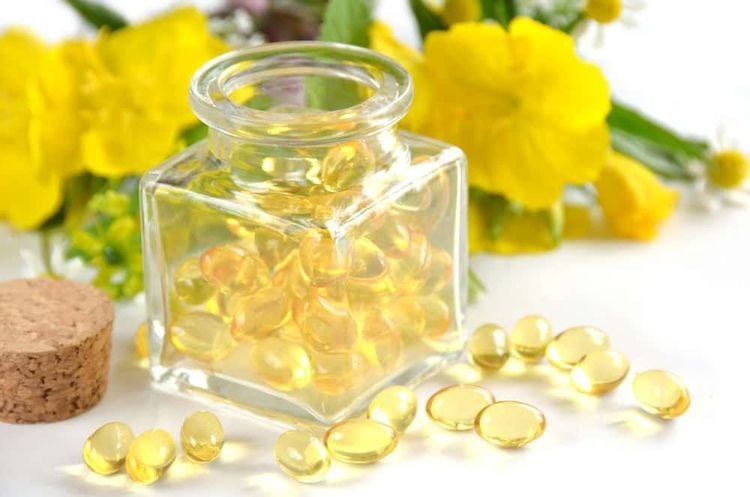
Nên trao đổi với bác sĩ về việc sử dụng các liệu pháp và thảo dược không kê đơn để hỗ trợ thời kì mãn kinh
Drugs: Soy (plant estrogen). Also known as phytoestrogens.
Side effects: Seems to be safe if consumed in food. In supplement form, consistency of dosage and quality can be a concern. Complementary medicine is not recommended for breast cancer survivors.
Efficacy: For the most part, results from clinical studies show that phytoestrogens are not effective for treating hot flashes.
Medication: Acupuncture
Side Effects: Upsetting for some people, often expensive. Generally well tolerated, but multiple visits are required.
Efficacy: Individual trials have reported some benefit, but larger studies have not shown any improvement over placebo procedures. However, some women report benefits of this, so more well-designed studies may be needed to answer this question.
Medication: Vitamin E
Side effect: 13% increased risk of heart failure. May increase mortality in people who use high doses for a long time. A higher risk of prostate cancer has also been shown, but only for men.
Efficacy: One study showed it to be effective. However, the improvement seen here was only one hot flash a day less than placebo.
4. Are over-the-counter (plant) herbal products safe?
While it is safe to take in moderate amounts through the diet, consuming large amounts of soy and isoflavone supplements may be harmful for women with a history of estrogen-dependent cancers. , like breast cancer and possibly other women.
More research is needed to determine the safety and effectiveness of botanical treatments. For example, ginseng, dong quai, yam, progesterone cream, acupressure, and magnetic devices are marketed to help relieve menopausal symptoms, but there are no good studies on their safety or effectiveness. . To make an informed decision about using these treatments, be sure to discuss them with your doctor.
Vinmec International General Hospital provides customers with a package of examination and consultation for perimenopause care to help you examine and consult with a gynecologist and perform tests to evaluate endocrine status. element.
Women between the ages of 45-55, possibly younger (when suffering from premature ovarian failure), have menstrual irregularities, sexual disorders, suspected endocrine disorders, or have a need for medical treatment. hormone replacement therapy, or want to prepare yourself for perimenopause and menopause.
Please dial HOTLINE for more information or register for an appointment HERE. Download MyVinmec app to make appointments faster and to manage your bookings easily.
Reference source: my.clevelandclinic.org




